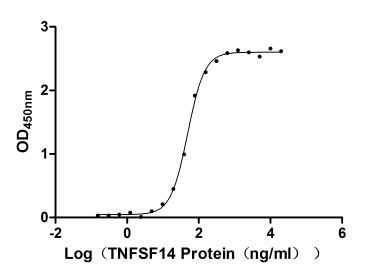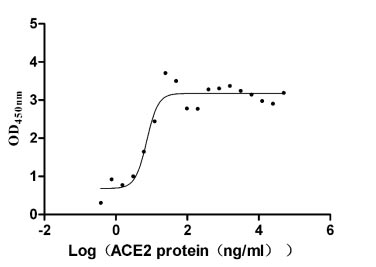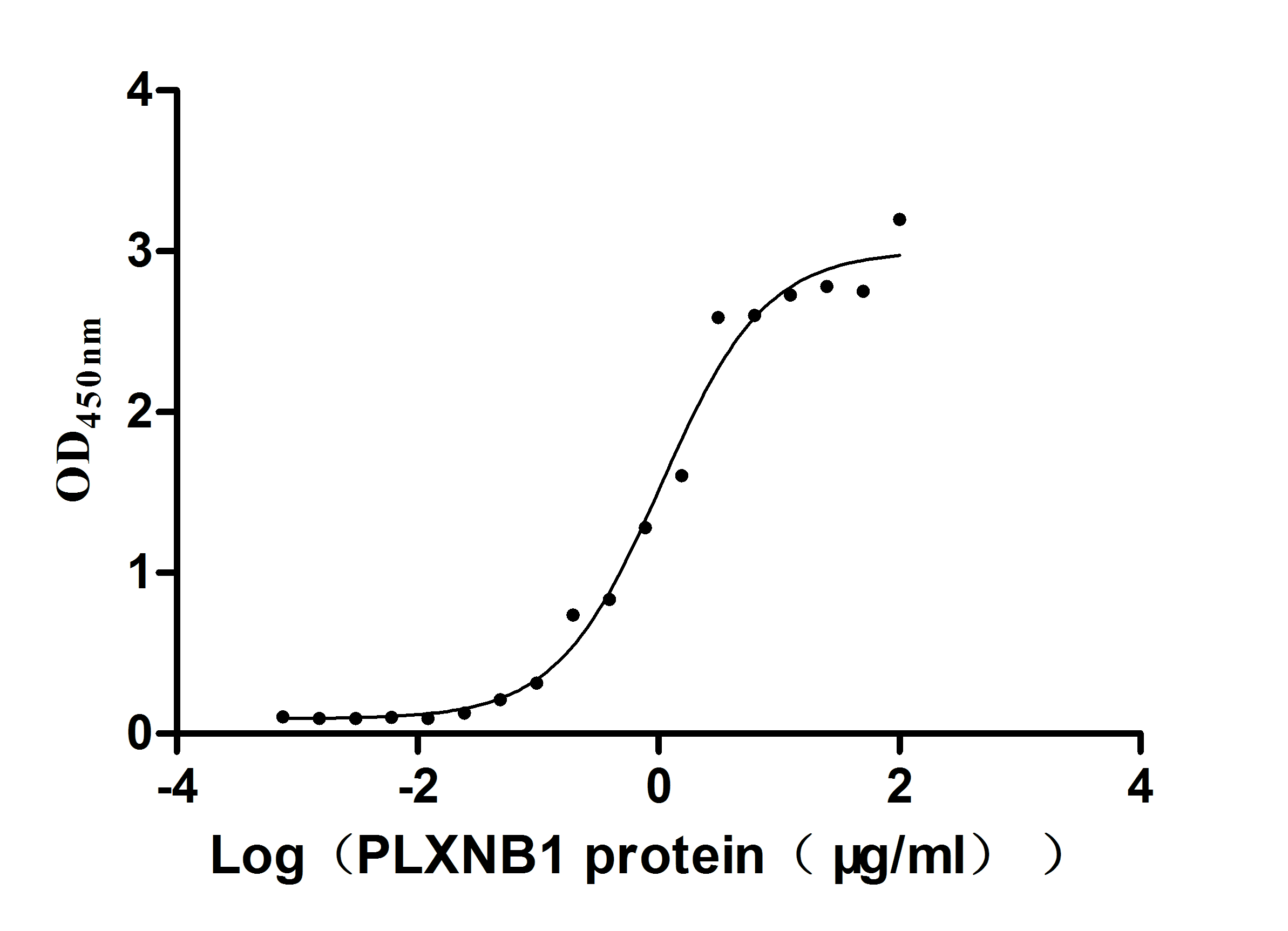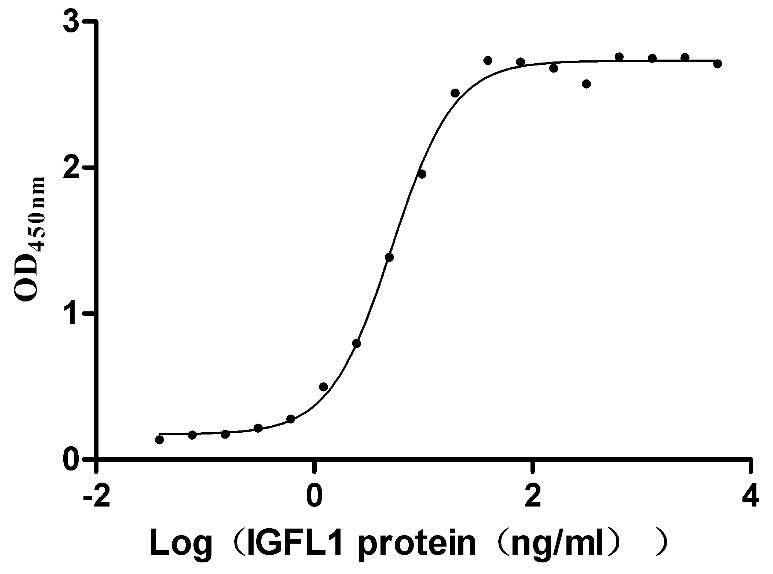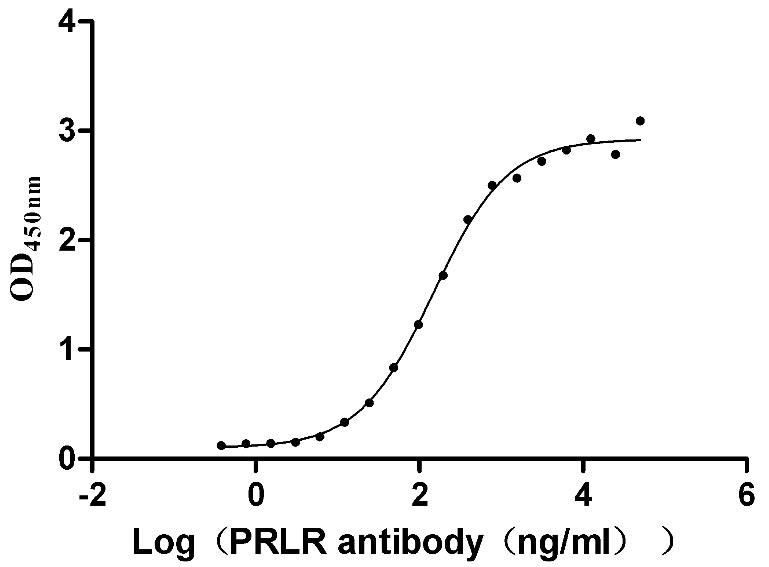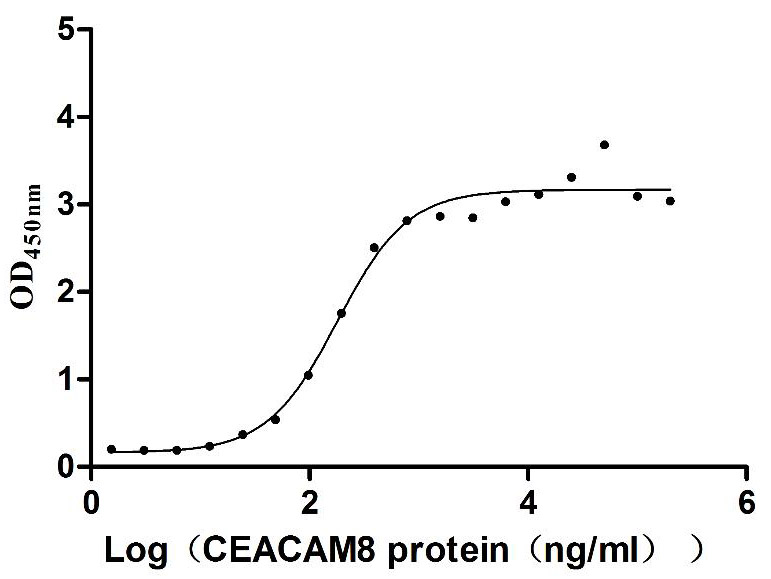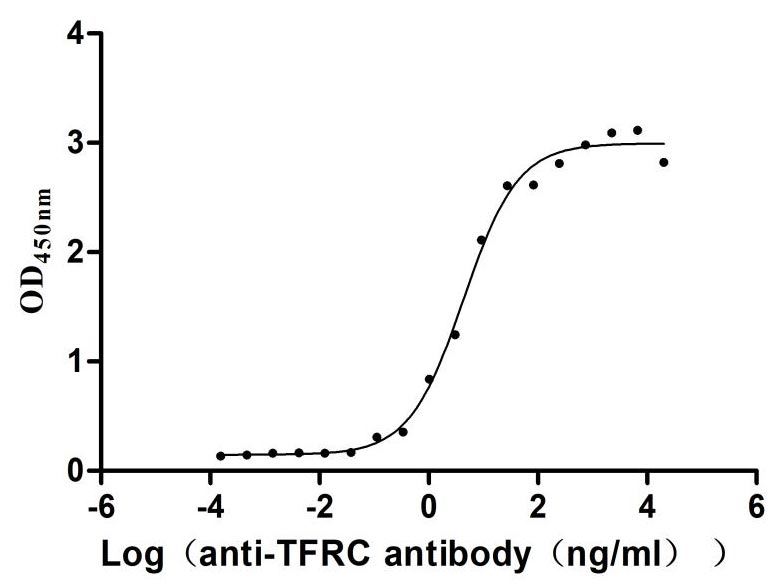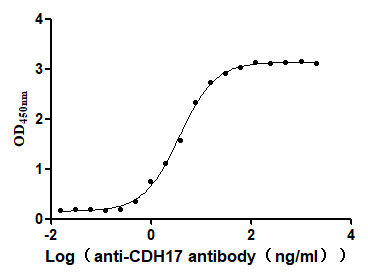Recombinant Human Plakophilin-3 (PKP3)
-
中文名稱:
-
貨號(hào):CSB-YP018082HU
-
規(guī)格:
-
來(lái)源:Yeast
-
其他:
-
中文名稱:
-
貨號(hào):CSB-EP018082HU
-
規(guī)格:
-
來(lái)源:E.coli
-
其他:
-
中文名稱:
-
貨號(hào):CSB-EP018082HU-B
-
規(guī)格:
-
來(lái)源:E.coli
-
共軛:Avi-tag Biotinylated
E. coli biotin ligase (BirA) is highly specific in covalently attaching biotin to the 15 amino acid AviTag peptide. This recombinant protein was biotinylated in vivo by AviTag-BirA technology, which method is BriA catalyzes amide linkage between the biotin and the specific lysine of the AviTag.
-
其他:
-
中文名稱:
-
貨號(hào):CSB-BP018082HU
-
規(guī)格:
-
來(lái)源:Baculovirus
-
其他:
-
中文名稱:
-
貨號(hào):CSB-MP018082HU
-
規(guī)格:
-
來(lái)源:Mammalian cell
-
其他:
產(chǎn)品詳情
-
純度:>85% (SDS-PAGE)
-
基因名:
-
Uniprot No.:
-
別名:Plakophilin-3 PKP3
-
種屬:Homo sapiens (Human)
-
蛋白標(biāo)簽:Tag?type?will?be?determined?during?the?manufacturing?process.
The tag type will be determined during production process. If you have specified tag type, please tell us and we will develop the specified tag preferentially. -
產(chǎn)品提供形式:Liquid or Lyophilized powder
Note: We will preferentially ship the format that we have in stock, however, if you have any special requirement for the format, please remark your requirement when placing the order, we will prepare according to your demand. -
復(fù)溶:We recommend that this vial be briefly centrifuged prior to opening to bring the contents to the bottom. Please reconstitute protein in deionized sterile water to a concentration of 0.1-1.0 mg/mL.We recommend to add 5-50% of glycerol (final concentration) and aliquot for long-term storage at -20℃/-80℃. Our default final concentration of glycerol is 50%. Customers could use it as reference.
-
儲(chǔ)存條件:Store at -20°C/-80°C upon receipt, aliquoting is necessary for mutiple use. Avoid repeated freeze-thaw cycles.
-
保質(zhì)期:The shelf life is related to many factors, storage state, buffer ingredients, storage temperature and the stability of the protein itself.
Generally, the shelf life of liquid form is 6 months at -20°C/-80°C. The shelf life of lyophilized form is 12 months at -20°C/-80°C. -
貨期:Delivery time may differ from different purchasing way or location, please kindly consult your local distributors for specific delivery time.Note: All of our proteins are default shipped with normal blue ice packs, if you request to ship with dry ice, please communicate with us in advance and extra fees will be charged.
-
注意事項(xiàng):Repeated freezing and thawing is not recommended. Store working aliquots at 4°C for up to one week.
-
Datasheet :Please contact us to get it.
相關(guān)產(chǎn)品
靶點(diǎn)詳情
-
功能:May play a role in junctional plaques.
-
基因功能參考文獻(xiàn):
- PKP3 overexpression increases the stability of other desmosomal proteins independently of the increase in DSC2 levels and regulates desmosome formation and stability by a multimodal mechanism affecting transcription, protein stability and cell border localization of desmosomal proteins. PMID: 29146182
- Children with low 25-hydroxyvitamin D and TMEM16J rs7111432-AA or PKP3 rs10902158-GG polymorphisms were at increased risk for tuberculosis or death. PMID: 26872154
- Data suggest juxtamembrane regions/domains of desmocollin-2 (DSC2), plakophilin 2 (PKP2), and plakophilin 3 (PKP3) are involved in desmosome formation in epithelial cells; DSC2 participates in desmosome formation in absence of desmoglein 2 (DSG2). PMID: 25972099
- The results suggest that MMP7 over-expression may be one of the mechanisms by which PKP3 loss leads to increased cell invasion and tumor formation. PMID: 25875355
- reactive oxygen species (ROS) trigger the c-Src kinase-mediated tyrosine (Tyr)-195 phosphorylation of PKP3. PMID: 25501895
- These findings reveal Pkp3 as a coordinator of desmosome and adherens junction assembly and maturation through its functional association with Rap1. PMID: 25208567
- cytoplasmic PKP1/3 are components of mRNA ribonucleoprotein particles and act as posttranscriptional regulators of gene expression. PMID: 25225333
- Pemphigus vulgaris autoimmune globulin induces Src-dependent tyrosine-phosphorylation of PKP3 and its detachment from DSG3. PMID: 24328683
- The study describes a new protein variant of the human PKP3 gene, namely PKP3b, which differs from the published PKP3a only at the amino-terminus by the splicing in of the newly identified exon 1b. PMID: 24178805
- stratifin plays a role in regulating plakophilin-3 incorporation into the desmosomal plaque by forming a plakophilin-3 stratifin complex in the cytosol and thereby affecting desmosome dynamics in squamous epithelial cells. PMID: 24124604
- In breast cancer, compared with normal tissue, PKP1 and PKP2 expressions were indifferent (P > 0.05), but PKP3 expression was significantly increased PMID: 21947748
- Plakophilin3 loss leads to an increase in PRL3 levels promoting K8 dephosphorylation, which is required for transformation and metastasis. PMID: 22701666
- These results demonstrate a strong association of single-nucleotide polymorphisms in the PKP3-SIGIRR-TMEM16J gene region and tuberculosis in discovery and validation cohorts. PMID: 22223854
- plakoglobin and E-cadherin recruit plakophilin3 to the cell border to initiate desmosome formation PMID: 20859650
- loss of PKP3 expression during gastric adenocarcinoma progression may indicate an invasive phenotype. PMID: 21194493
- both loss of PKP1 and up-regulation of PKP3 expression are biologically important events in prostate cancer and are associated with a more aggressive phenotype PMID: 20348237
- PKP3 mRNA can be used as a marker of subclinical disease in gastrointestinal cancer and thus holds potential clinical relevance as a predictor for disease outcome PMID: 20501752
- PKP3, whose desmosomal expression and protein interactions are broader than those of PKP1 and -2, is a unique multiprotein binding element in many epithelial desmosomes. PMID: 12707304
- Cytoplasmic PKP3 is constitutively associated with RNA-binding proteins and indicate an involvement in processes of translation and RNA metabolism. PMID: 16407409
- The transcriptional repression of PKP3 by ZEB1 contributes to ZEB1-mediated disintegration of intercellular adhesion and epithelial to mesenchymal transition. PMID: 17391671
- plakophilin3 loss leads to a decrease in cell-cell adhesion leading to the stimulation of neoplastic progression and metastasis PMID: 18729189
顯示更多
收起更多
-
亞細(xì)胞定位:Nucleus. Cell junction, desmosome. Note=Nuclear and associated with desmosomes.
-
蛋白家族:Beta-catenin family
-
組織特異性:Isoform PKP3a is found in desmosomes of most simple and stratified epithelia. Not found in foreskin fibroblasts and various sarcoma-derived cell lines. Beside dendritic reticular cells of lymphatic follicles not found in non-epithelial desmosome-bearing t
-
數(shù)據(jù)庫(kù)鏈接:
Most popular with customers
-
Recombinant Human Tumor necrosis factor ligand superfamily member 14 (TNFSF14), partial (Active)
Express system: Mammalian cell
Species: Homo sapiens (Human)
-
Recombinant Macaca fascicularis Angiotensin-converting enzyme (ACE2), partial (Active)
Express system: Mammalian cell
Species: Macaca fascicularis (Crab-eating macaque) (Cynomolgus monkey)
-
Recombinant Human Plexin-B1 (PLXNB1), partial (Active)
Express system: Mammalian cell
Species: Homo sapiens (Human)
-
Recombinant Human IGF-like family receptor 1 (IGFLR1), partial (Active)
Express system: Mammalian cell
Species: Homo sapiens (Human)
-
Recombinant Human Prolactin receptor (PRLR), partial (Active)
Express system: Mammalian cell
Species: Homo sapiens (Human)
-
Recombinant Human Carcinoembryonic antigen-related cell adhesion molecule 6 (CEACAM6) (Active)
Express system: Mammalian cell
Species: Homo sapiens (Human)
-
Recombinant Human Transferrin receptor protein 1 (TFRC), partial (Active)
Express system: Mammalian cell
Species: Homo sapiens (Human)
-
Recombinant Human Cadherin-17 (CDH17), partial (Active)
Express system: Mammalian cell
Species: Homo sapiens (Human)


